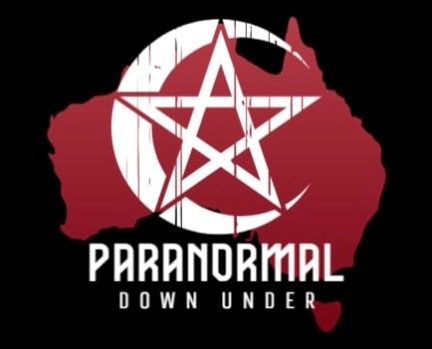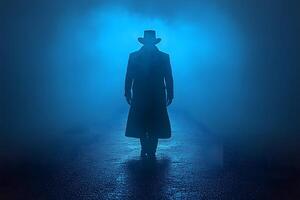In recent years, interest in the paranormal has grown significantly. From television programs to private research teams, the pursuit of understanding the unknown has evolved into a structured and professional field of study. At the centre of this work is the paranormal investigator. An individual dedicated to researching, documenting and analysing unexplained phenomena with a balanced approach that blends science, history and open-minded inquiry.
Defining a Paranormal Investigator
A paranormal investigator is a trained researcher who examines reports of unexplained occurences, often associated with hauntings, apparitions or other phenomena that fall outside the normal scientific explanation. Their objective is not merely to prove the existence of the supernatural, but to seek the truth through methodical investigation and evidence-based analysis.
Professional investigators approach each case with discipline and objectivity, gathering data through both technological and observatrional methods. Their findings contribute to a broader understanding of the potential relationship between environmental, psychological and spiritual factors in reported paranormal activity.
Core Responsibility of a Paranormal Investigator
Paranormal investigations involve careful preparation, systematic data collection and comprehensive evidence review. Each stage of the process plays a vital role in maintaining professionalism and credibility.
1. Preliminary Research
Before conducting any fieldwork, investigators perform detailed background reseach on the location or case. This includes reviewing historical records, interviewing witnesses and assessing environmental conditions. Understanding the history and context of a site is crucial in distinguishing legitimate anomalies from naturally occuring explanations.
2. Equipment Setup and Calibration
Modern investigators employ a range of instruments to collect measurable data such as:
- EMF Meters: Detect fluctuations in electromagnetic fields.
- EVP Recorders: Capture potential audio phenomena not heard during investigation.
- Spirit Boxes: Facilitate real-time audio scanning for possible responses.
- Thermal and Infrared Cameras: Detect variations in temperature and visual anomalies in low light conditions.
All Equipment is tested, calibrated and documented before and after each investigation to ensure accuracy and eliminate false readings.
3. Field Investigation and Data Collection
During an investigation, teams work methodically, recording environmental changes, conducting EVP sessions and mainting detailed logs. Communication is kept professional and respectful, particularly in historic or private locations. The emphasis remains on evidence collection and environmental monitoring, not on provocation or entertainment.
4. Evidence review and Analysis
Following the investigation, all collected data, including video, audio and environmental readings, is thoroughly reviewed. Investigators look for inconsistencies, patterns or unexplainable results. A significant portion of professional paranormal work occurs during this analysis stage, often taking days or weeks to complete.
5. Debunking and Verification
A critical aspect of responsible investigation is debunking, identifying logical or environmental explanations for percieved paranormal activity. Professional teams approach all evidence with a healthy degree of skepticism, ensuring that any remaining anomalies are genuinely unexplained and not the result of natural interference.
Why People Choose to Investigate the Paranormal
The motivation behind paranormal investigation are varied, but they often stem from a combination of curiosity, compassion and a desire for understanding.
Scientific and Intellectual Curiosity
Many investigators are motivated by the pursuit of knowledge. They aim to better understand phenomena that challenge conventional science, approaching the unknown with disciplined methodology.
Assisting Others
Paranormal investigators are frequently called upon to help property owners, families or businesses experiencing unexplained disturbances. By identifying the cause, be it environment, psychological or potentially paranormal, they provide reassurance and clarity to those affected.
Historical and Cultural Preservation
Investigations often take place in historic locations. Through research and documentation, investigators help preserve stories, traditions and events that might otherwise be forgotten, contributing to broader cultural and historical awareness.
Personal and Spiritual Exploration
For some, the word is deeply personal. Individuals who have had their own unexplained experiences often seek to understand them through structured, professional investigation.
The Evolving Role of the Paranormal Investigator
Modern paranormal investigators strive to balance open-mindedness with scientific integrity. While the field remains largely outside mainstream academia, advances in technology and data analysis have brought increased professionalism and structure. Many teams now follow standardised protocols, maintain ethical guidelines and collaborate with other disciplines such as psychology, environmental science and history.
This blend of science, empathy and respect for both the living and the deceased defines the modern approach to paranormal research.
Conclusion
A paranormal investigator is not merely a ghost hunter, they are a researcher, historian and analyst dedicated to uncovering the truth behind unexplained events. Through disciplined methodology, ethical practice and evidence based inquiry, they bring structure and credibility to a field that has fascinated humanity for centuries.
Whether exploring historic sites or helping those affected by mysterious occurences, the goal remains constant. To better understand the unknown while maintaining respect for the stories, people and places connected to it.

